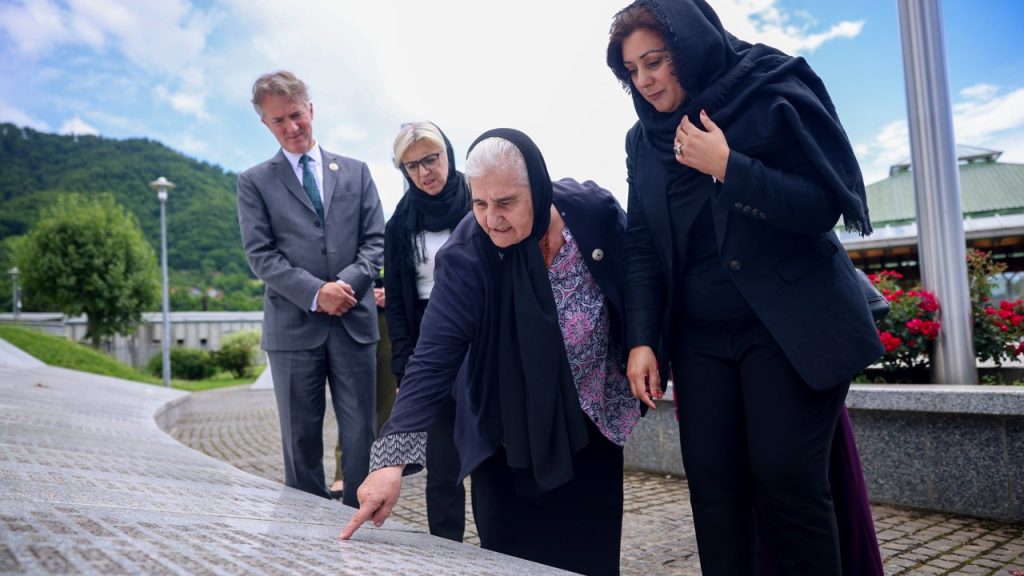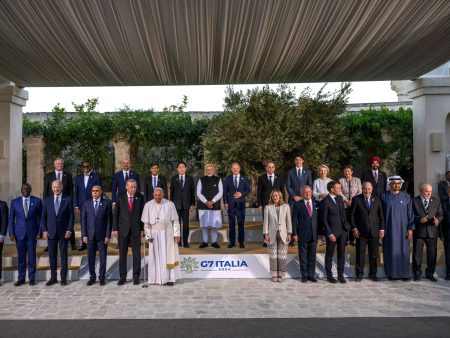The United Nations approved a resolution establishing an annual day to commemorate the 1995 genocide of over 8,000 Bosnian Muslims by Bosnian Serbs. The vote in the General Assembly was 84-19 with 68 nations abstaining. The resolution designates July 11 as the “International Day of Reflection and Commemoration of the 1995 Genocide in Srebrenica.” The move was fiercely opposed by Serbs who fear being labeled as supporters of the mass killings. The resolution was sponsored by Germany and Rwanda and did not specifically blame Serbs for the genocide, leading to a lobbying campaign against it by Bosnian Serb and Serbian officials.
The Srebrenica killings occurred when Bosnian Serbs overran a U.N.-protected safe area in Srebrenica on July 11, 1995. They separated thousands of Muslim Bosniak men and boys from their families and slaughtered them. This event was the brutal culmination of Bosnia’s 1992-95 war, which was fueled by nationalist passions and territorial ambitions among different ethnic groups. Despite denial from both Serbia and Bosnian Serbs, two U.N. courts have confirmed that genocide occurred in Srebrenica. The resolution aims to commemorate the victims and bring attention to this tragic event in history.
Bosnian Serb president Milorad Dodik strongly opposed the resolution, believing it was being forced on the country by supporters of Muslim Bosniaks. He threatened to secede from Bosnia if the resolution passed, as he felt it would split up the country. Dodik has made similar threats in the past to have Serb-controlled territories join neighboring Serbia. The final draft of the resolution emphasized the General Assembly’s commitment to maintaining stability and fostering unity in Bosnia and Herzegovina. The International Court of Justice ruled in 2007 that the acts in Srebrenica constituted genocide.
The resolution aims to create an official U.N. day of remembrance for the Srebrenica genocide, similar to the annual commemoration of the 1994 Rwanda genocide. Menachem Rosensaft, an adjunct professor at Cornell Law School and son of Holocaust survivors, emphasized the importance of honoring the victims of the Bosnian genocide. He highlighted the abandonment of the Bosniaks who sought shelter in Srebrenica by Dutch U.N. peacekeepers, leading to their tragic deaths. The approval of the resolution faced criticism for its timing, with some pointing out ongoing conflicts such as the situation in Gaza.
Overall, the resolution establishing the “International Day of Reflection and Commemoration of the 1995 Genocide in Srebrenica” marks an important step in acknowledging and remembering the tragic events that took place in Bosnia. Despite opposition from Bosnian Serbs and Serb officials, the resolution aims to honor the victims of the genocide and prevent such atrocities from happening again in the future. The resolution also reaffirms the U.N.’s commitment to stability and unity in Bosnia and Herzegovina. By designating July 11 as the official day of remembrance for the Srebrenica genocide, the U.N. hopes to raise awareness and bring attention to this dark chapter in history.















